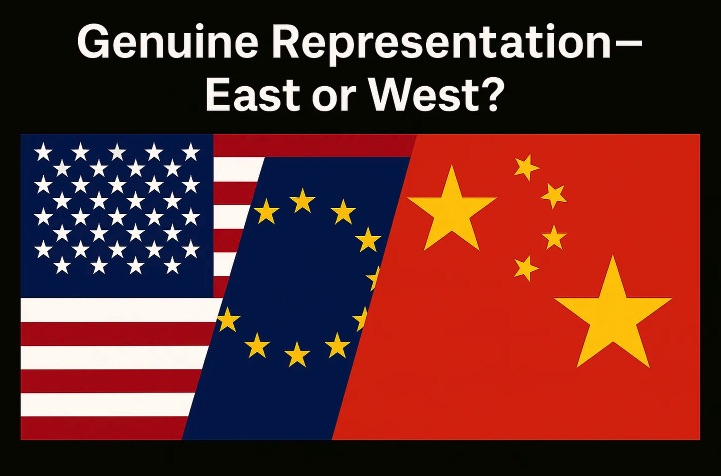The crisis of Western democracy
Western democracies often present themselves as paragons of political freedom and popular representation. Yet behind this façade lies a sobering reality: power is increasingly concentrated in the hands of a small, ultra-wealthy elite—an arrangement more accurately described as oligarchy.
Political processes are significantly influenced by lobby groups, large corporations and the media with which they are intertwined. Many citizens feel politically alienated and powerless. For example, a majority of the population rejects endless wars and would prefer to see the billions spent on them invested in infrastructure, education, and affordable healthcare. But these concerns fall on deaf ears. Despite formal freedom of choice, trust in institutions is dwindling, while social inequality continues to grow.

Cover of book Plutocrats: The Rise of the New Global Super-Rich and the Fall of Everyone Else
Another way: governance in the service of the majority
In contrast, countries such as Vietnam and China pursue a style of government that is less focused on formal procedures and more on concrete results for the general population. Both states – led by communist parties – rely on hybrid systems that combine a controlled market economy with strategic state planning. Competition is encouraged, and cartels and monopolies are regulated in the interests of consumer protection and innovation.
State planning focuses on key areas such as infrastructure, research and development, education, and healthcare, with positive spillover effects for the private sector. Companies benefit from modern infrastructure, a better-qualified workforce and lower healthcare costs, which further boosts economic efficiency.
The result is economic and social progress that stands out internationally for its speed and inclusiveness. Millions of people have been lifted out of poverty and the foundations for sustainable growth have been systematically strengthened – not through deregulation and market fundamentalism, but through governance focused on the common good.
Perceived representation beyond the ballot box
Although these systems are often described as authoritarian in the West, surveys paint a more nuanced picture. According to the Democracy Perception Index 2025 published by the Western-influenced Alliance of Democracies, over 80% of citizens in China and almost as many in Vietnam perceive their government as representative and democratic – not because of multi-party elections, but because the government delivers concrete results: stability, security, rising living standards, and social participation.
Formal vs. functional: two understandings of democracy
West: Democracy as an electoral ritual – regardless of whether anything actually changes for the majority
Vietnam/China: Democracy as a functional responsibility – measured in terms of quality of life, development, and public trust
In the West, a system can be formally democratic while in reality being controlled by oligarchies. In Vietnam and China, on the other hand, legitimacy is increasingly based on the ability to deliver concrete results – not on ideological forms.
Impressive economic results
Per capita GDP (PPP, 2025):
- China: US$29,000
- Vietnam: US$17,500
- Philippines: approx. US$12,900
- India: only US$7,000–10,000
Average daily income since 1990
- China: 2 → 15
- Vietnam: 3 → 14
- India: 3 → only 5
This transformation is not the result of neoliberal “trickle-down” theories, but is based on state-directed development, targeted poverty reduction, and industrial planning.
Neutrality instead of bloc politics: Vietnam’s principles
Vietnam pursues a sovereign foreign policy based on four clear “no’s”:
- No military alliances
- No partisanship
- No foreign military bases
- No violence in international relations
Neighboring China is following suit and firmly rejects the formation of new blocs modeled on the Cold War. Although strategic partnerships exist—for example, with Russia—these are not aimed at forming fixed alliances or military camps.
This principle of active neutrality stands for a peaceful, self-determined path to development – a model that is increasingly seen in the Global South as a credible alternative to the geopolitical confrontations emanating from the West.
Health and quality of life as indicators
- China: Life expectancy rose from 30 years (1949) to 78 years (2023)
- Vietnam: from 55 years (1974) to 75 years (2023)
- India: only 72 years (2023)
These successes show that prosperity and progress are possible even without Western institutions – if political systems are functional and act in the public interest.
Confucian meritocracy instead of plutocratic farce
The political culture in Vietnam and China is deeply influenced by Confucianism:
- Leadership as a moral responsibility
- Selection based on performance and competence rather than money or media power
- Stability, the common good, and social balance rather than polarization and show politics
This principle can be described as Confucian meritocracy—a model of government based on technocratic competence and public ethics. It stands in sharp contrast to Western systems, where political careers are often enabled and controlled by proximity to wealthy financial backers.
A more in-depth analysis can be found in my article on China’s Confucian meritocracy, which also addresses the question:
👉 “Is China communist – or meritocratic?”
The rise of the Global South: ASEAN, BRICS, and new alliances
In May 2025, the first ASEAN-GCC-China summit took place – a historic signal for the emergence of a multipolar world order that is no longer dominated by Western military blocs. Vietnam plays a central role in this as a neutral, sovereign country – it combines economic openness with cultural self-determination.
Conclusion: It’s not about ideology, but about results
Vietnam and China are not utopias – but they show that functioning alternatives to the Western political model exist. They do not question the world order, but make it clear that there can be more than one order.
At a time of growing global uncertainty and increasing skepticism toward Western institutions, Hanoi and Beijing are sending a clear message:
Democracy is not about ballot boxes, but about responsibility. It is not about form, but about impact.

